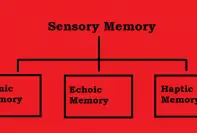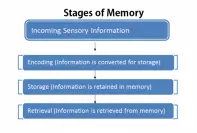Fabricated or distorted recollection of an event is referred to as false memory.
Contrary to the popular belief, memory is not a video recorder that constantly, accurately records and stores the incidents in our life. The truth is, memory is very much prone to distortion. It’s not unusual for people to be 100% sure about their certain recollection of an event even when they are wrong. Their confidence is thanks to their memory, but it’s by no means right to believe that the particular memory must be true.
Note: It’s a part of the famous experiment conducted on false memories. By the end of the experiment, 75% of the individuals believed that they were indeed lost, and 20% of those individuals even refused to believe that false memory had been planted onto their head.
Definitions
“A false memory is a mental experience that is mistakenly taken to be a veridical representation of an event from one’s personal past. Memories can be false in relatively minor ways (e.g., believing one last saw the keys in the kitchen when they were in the living room) and in major ways that have profound implications for oneself and others (e.g., mistakenly believing one is the originator of an idea or that one was sexually abused as a child).”
(Johnson, M. K., 2001)
“It is essential, at this early stage, to distinguish false memory from the more familiar idea of memory fallibility. Memory, as everyone knows, is an imperfect archive of our experience… In its most general sense, false memory refers to circumstances in which we are possessed of positive, definite memories of events – although the degree of definiteness might vary – that did not actually happen to us.”
(Brainerd & Reyna, 2005)
The phenomenon of remembering events that did not actually occur is not at all uncommon. Of course, not everyone is as much affected by the false memories.
In most cases, it’s usually the small things like remembering having seen the phone in the living room, when the phone was actually in the kitchen. But, in few cases the condition might be bit severe.
There is an idea that false memories can lead to a condition called False Memories Syndrome. It’s not dubbed as a mental condition, however, people who are suffering from it could suffer issues and disorders based on the false memory. For example, Let’s say false memories have been planted to a person about being sexually abused as a child. Even though that’s untrue, the person could undergo same effects as the real victims of child abuse.
Cause
One of the major causes of occurrence of false memories has been dubbed to be Expectation. If you expect to remember a certain incident, the chances are that you will remember it, even though it’s not true.
In one experiment conducted by Elizabeth Loftus, participants were made to watch a video of a car driving through countryside. Later, when they were asked to describe the color of the barn in the background, almost everyone said red even though there was no barn in the background.

Existing knowledge and misattribution also plays a part in the formation of false memories. Here, because the participants knew that the barn is generally red, they just assumed it would be so in the video too.
Suggestion is another method of implanting memories. Through her studies, Elizabeth Loftus also demonstrated that false memories can get stronger over time. It might even reach to a point where the original memory is completely distorted and changed.
Potential Effects
As mentioned above, most effects of false memories are fairly simple. For instance, being sure that you hung the keys after you entered the house, but forgetting them on the door knob.
However, there can be serious effects of false memories. Research has found that false memories are among the leading causes of false convictions.
Remember the 1999 movie “The Hurricane”? Denzel Washington plays the real life character of Rubin Carter who was wrongfully imprisoned for murder. Although there are many factors at play there, one of the reasons was false identification. And, there have been plenty more cases of suspects being falsely convicted because of false identifications by the witness.
Who is more Susceptible?
A one liner answer would be everyone. In one way or another, almost everyone can be susceptible to being implanted with false memories through simple suggestions and because of expectations to recollect information. Loftus conducted variety of studies on the subject to demonstrate how readily and easily can false memories form.
Another ground breaking discovery was that false memories are more likely to be formed when an interview is delayed for a period of time. For instance, in case of eye witness, if the witness is interviewed promptly, he/she is less likely to be influenced by anything other than the real events.
The Bottom Line is that our memories aren’t as reliable as we would want them to be. Even those who have really good memories can be influenced with false memories.



